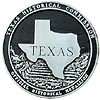| |
|
|
Saint Philip's College |
|
 |
|
1801 Martin Luther King Dr., San Antonio,
TX,
USA
|
| |
| |
|
Texas State
Historical Marker |
St. Philip's Industrial School, founded March 1, 1898, was born of strong support from the Rt. Rev. James Steptoe Johnston, bishop of the Episcopal Diocese of West Texas, and the parishioners of St. Philip's Church. The church congregation, seeking a Christian-oriented education for African Americans, organized a sewing class that soon evolved into a vocational day school for black children in the rectory of St. Philip's Church at 306 La Villita Street. The program soon moved into a brick schoolhouse behind the church and was funded by student fees and private donations. Artemisia Bowden was hired as principal and teacher in 1902 and she immediately focused her efforts on expanding the school's curriculum, enrollment and staff. Bishop Johnston's successor, William T. Capers, participated in fundraising efforts. In 1911, the school became known as St. Philip's Normal Grammar and Industrial School and in 1918 the school moved to a new four-acre campus near this site. St. Philip's became a junior college in 1927, and through a tireless campaign waged by President Bowden it became a branch of the San Antonio Junior College System, offering liberal arts and vocational studies as a public school. When the U. S. Supreme Court's 1954 Brown vs. Board of Education decision prompted desegregation across the country, St. Philip's began serving students from all backgrounds. In 1998, 100 years after its founding, St. Philip's College reported an enrollment of nearly 9,000 students from a variety of racial and ethnic backgrounds. The college continues to uphold ;the standards set for it by its founders and leaders. (1998)
This page last updated: 7/15/2008 |
|
|
|
|


